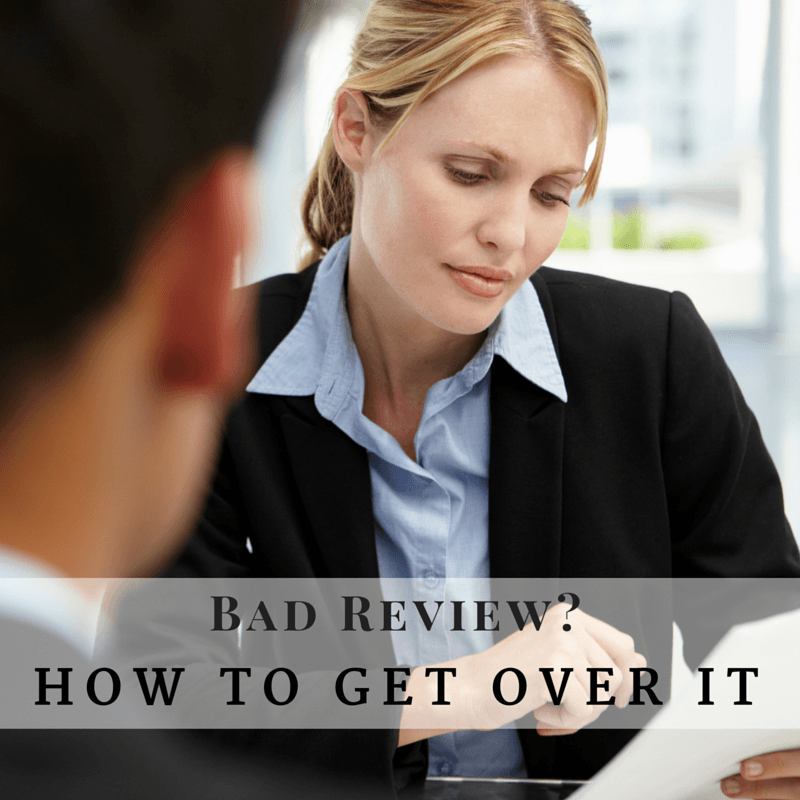No matter how hard we work or how talented we are, it’s always possible to be on the receiving end of a bad review.
It may not be easy to hear and we may feel like we’ve had the rug pulled out from underneath us. Yet we must keep moving forward and doing our best to deliver, or next year’s review could be the same or worse.
What do we do to ensure one bad rating doesn’t become the start of a negative trend? MARCH.
Mourn
Critical feedback is supposed to be a gift. Sometimes, however, that gift can be hard to take.
If it the feedback feels unexpected in any way – we have to go through the stages of loss. While critical feedback won’t kill us, it’s important to recognize the loss of alignment between our manager’s perception and our own.
The stages may pass quickly or take a period of time, but they are consistent:
- Denial – The feedback isn’t true.
- Anger – It could be true, but I shouldn’t have been surprised.
- Bargaining – If only I had done x, y, or z differently.
- Depression – It’s true and I suck.
Until we can get through these early stages, we cannot move forward with positive change that will improve our results next year.
Talking to friends can help us progress through the phases. Cheerleaders can shore us up when we’re feeling down about ourselves. At some point, we need more than cheerleaders, however. We need someone that will tell it to us straight.
A word of warning – use caution when talking with anyone at work. In this first phase, our initial reaction (and the words we use to express it) could come back to haunt us next year.
Accept
We have a part to play in our performance, and our reviews. Even if we have a manager that’s a big old meanie, we are still present and have choices in how we engage him or her.
We cannot move past a bad review and improve our situation unless we accept responsibility for how we got there.
The responsibility may be that we selected this role and this manager. It could be that neither was what we expected, yet we stayed.
Wallowing in mourning will result in the same rating next year, or worse. Accepting accountability for our situation is the pivot point necessary to make the – potentially painful or scary – changes to turn things around.
Reflect
Hopefully, the review and accompanying discussion came with actionable feedback:
- What happened?
- What would a successful alternative have looked like?
- What may be necessary to achieve that alternative in the future (training, experience, etc)?
When it’s something clear and actionable – something concrete we did or didn’t do – reflection is much easier. What steps can we take to make sure we learn from what happened and take an alternative path next time?
What if it’s not concrete? What if we are not given specific examples? No one that can help us understand the specifics or alternatives to consider?
Then we have to look inward and do our best to be honest with how we think and behave.
Several years ago, I was given feedback I didn’t understand. I was told there were some folks that were uncomfortable with me. When I pushed, I was told I treated people with dignity and respect, and that my teams and partners respected me.
Over time, I was able to determine what the individuals providing the feedback had in common. They were people with whom I had an occasional interaction, and I tended to present a poor first impression. The good news was, as soon as they got to know me, their experience was positive.
With that insight, I was able to ask myself: Do I provide the opportunity for others to get to know me? Am I open to engaging on an interpersonal level or am I perceived as more of a machine?
Our managers may not always know how to help us, and may provide feedback that we have to dissect and determine how to best use. While it’s not always easy to hear, this is why feedback is a gift. Once I knew about my first impressions, I was able to build stronger relationships, faster, and reduce the risk of alienating those around me.
Change
With awareness of what’s working and what isn’t, we must start making changes to affect the positive outcomes we desire.
It doesn’t matter if the change is big or small. Depending on the opportunity, small changes could have a huge impact. For example, small adjustments to our thinking can influence our behaviors and actions.
Big changes, such as changing roles, teams, companies or career paths, should be evaluated thoroughly. They should not be made as a knee jerk reaction to the feedback.
For example, if we’ve received the same feedback from more than one manager, just changing the scenery isn’t going to be enough. We are the one constant in our career. Often, we are the change that must happen – otherwise, we will see the same patterns and results wherever we go.
Depending on the nature of the changes we want to affect, we may need support and input from our managers. As long as the changes assume we are staying in our current role/team/company, reviewing the action plan with our manager is a good idea to make sure our changes will actually address the issue.
Hone
We should never get feedback at the end of the year, and then hear nothing again until next year. Whether our manager is proactively providing input or not, we should be asking for it on a regular cadence.
As we affect change, feedback is necessary so we can adjust course and ensure we are achieving the results we expect.
In some cases, our manager may not be the only person we can – or want to – get feedback from. We can talk with mentors, friends, or co-workers, letting them know what we’re trying to achieve and asking them to share their observations.
Regardless of who is providing it, feedback is only worthwhile if we use it. If we find ourselves struggling to view feedback as a gift, maybe learning how to accept feedback is one of the changes we need to make.
If you have a long history of good reviews, getting a bad one may feel like the end of the world (or at least your career).
The good news is that hiring managers do not just look at the last rating and automatically pass on a candidate. We know that one rating does not make a trend. As long as the ratings that follow are positive, the bad rating looks like the blip on the radar that it is.
However, NO ONE should be complacent about a bad review. Even if it’s a blip on the radar, there was a reason for it. Understanding that reason to ensure it doesn’t happen again is important to our growth and development.
Always remember that feedback is a gift. What you do with it is up to you.
Have you ever received a bad review, or helped others move past one? Please share your experience in the comments.









